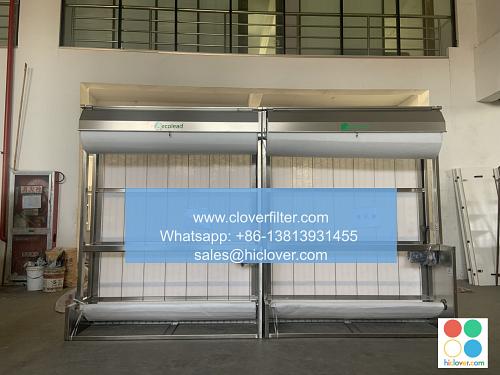The Role of Air Filtration in Preventing Virus Transmission at Emory University

Emory University, a leading institution in the field of public health and medicine, has been at the forefront of researching and implementing effective measures to prevent the transmission of airborne viruses. One crucial aspect of their strategy is the use of advanced air filtration systems, which play a vital role in maintaining a healthy indoor environment. In this article, we will delve into the importance of air purification and ventilation systems in preventing the spread of viruses, highlighting various application areas and key technologies used at Emory University.
Understanding the Risk of Airborne Virus Transmission
Airborne viruses, such as influenza, coronavirus, and norovirus, can spread quickly through the air, posing a significant threat to public health. These viruses can be transmitted through aerosolized particles, which can remain suspended in the air for extended periods, increasing the risk of infection. Emory University, with its large student body and faculty, is particularly vulnerable to the spread of airborne viruses. Therefore, it is essential to implement effective measures to prevent the transmission of these viruses.
The Importance of Air Filtration in Preventing Virus Transmission
Air filtration systems are a critical component in preventing the transmission of airborne viruses. These systems work by removing airborne particles, including viruses, bacteria, and other microorganisms, from the air. By using high-efficiency particulate air (HEPA) filters or ultraviolet (UV) light disinfection, air filtration systems can significantly reduce the concentration of airborne viruses, thereby minimizing the risk of transmission.
Application Areas of Air Filtration at Emory University
Emory University has implemented air filtration systems in various application areas, including:
* Classrooms: Air filtration systems are installed in classrooms to reduce the risk of airborne virus transmission among students and faculty.
* Laboratories: Advanced air filtration systems are used in laboratories to prevent the spread of airborne viruses and other microorganisms.
* Healthcare facilities: Emory University’s healthcare facilities, including hospitals and clinics, use air filtration systems to protect patients, visitors, and staff from airborne viruses.
* Residential buildings: Air filtration systems are installed in residential buildings to maintain a healthy indoor environment for students and staff.
Key Technologies Used in Air Filtration Systems
Emory University employs various key technologies in its air filtration systems, including:
* HEPA filters: These filters can capture 99.97% of particles as small as 0.3 microns, including viruses and bacteria.
* UV light disinfection: This technology uses UV light to kill or inactivate microorganisms, including viruses and bacteria.
* Ionization technology: This technology uses ions to attract and trap airborne particles, including viruses and bacteria.
Conclusion
In conclusion, air filtration plays a vital role in preventing the transmission of airborne viruses at Emory University. By using advanced air filtration systems, including HEPA filters, UV light disinfection, and ionization technology, the university can significantly reduce the risk of airborne virus transmission. The implementation of air filtration systems in various application areas, including classrooms, laboratories, healthcare facilities, and residential buildings, highlights the importance of air purification and ventilation systems in maintaining a healthy indoor environment. As a leading institution in public health and medicine, Emory University sets an example for other organizations to follow in prioritizing the use of air filtration systems to prevent the spread of airborne viruses.

